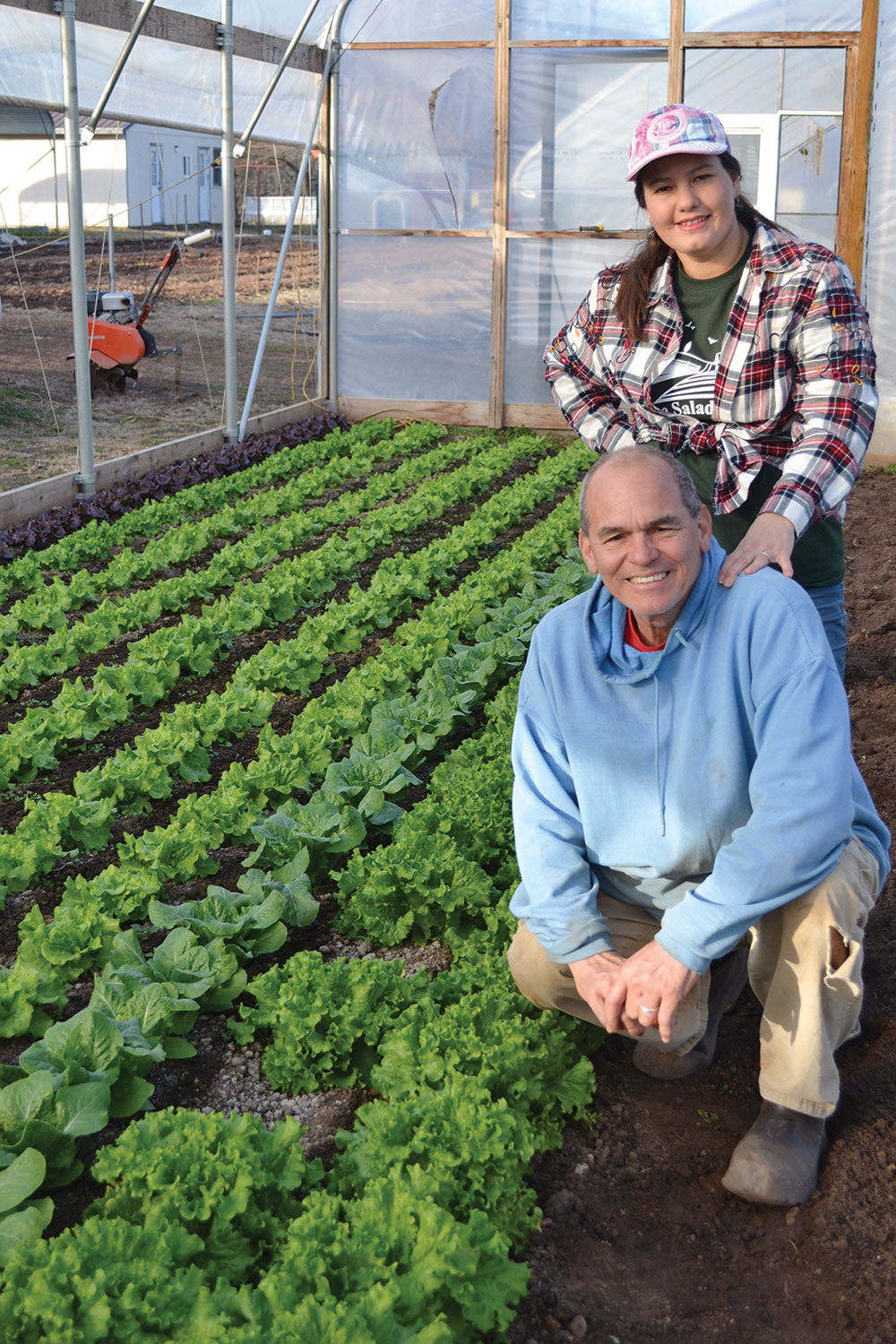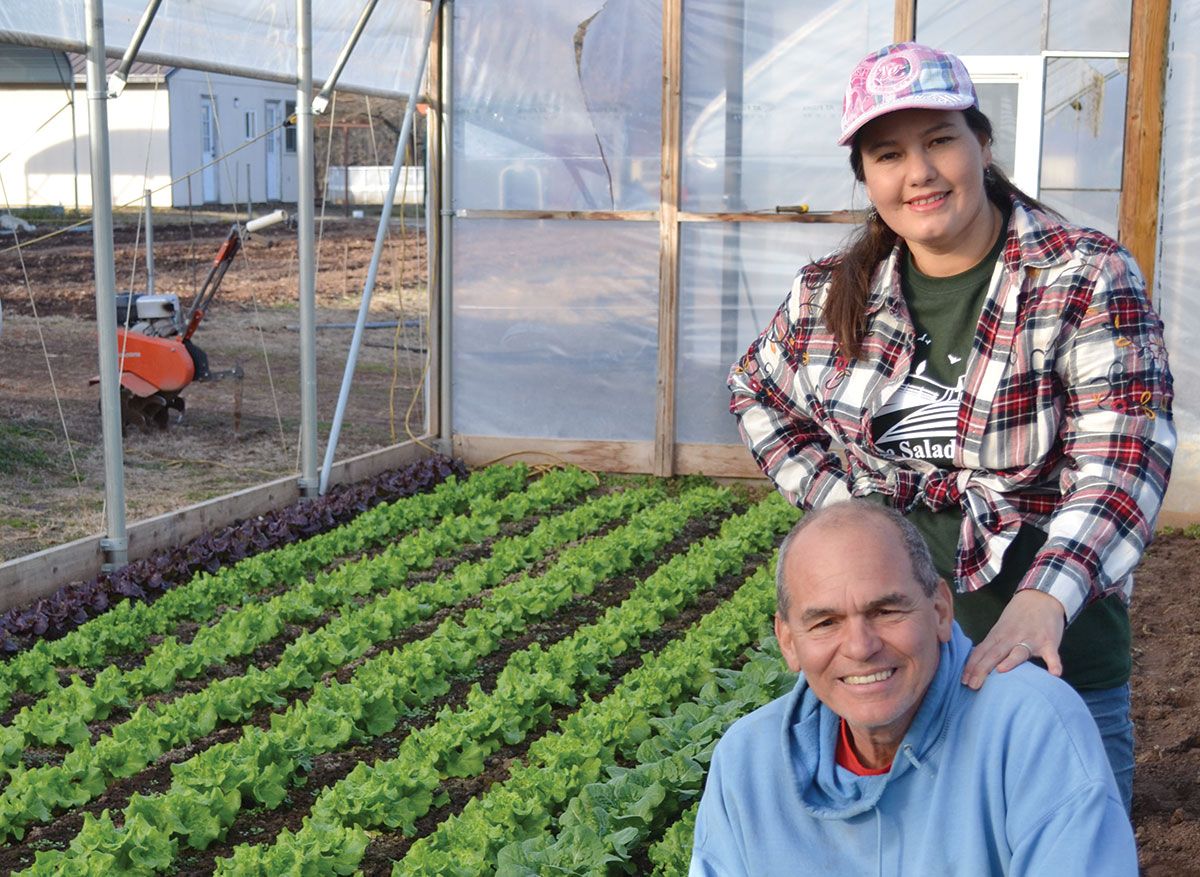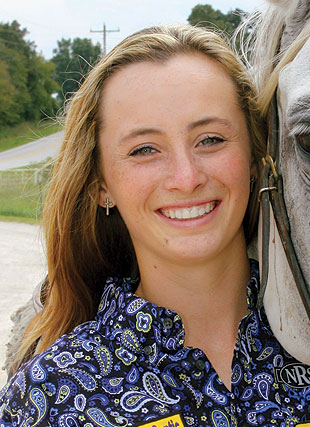 Grants allow couple to grow fresh produce when other gardens are dormant
Grants allow couple to grow fresh produce when other gardens are dormant
Lettuce, spinach, carrots and beets rebound in the December sunshine in Polk County just outside Bolivar, Mo., at The Salad Farm, operated by Ronald and Sonya Antonini.
Beginning seven years ago when they came from Venezuela literally “with the clothes on their backs” as Ronald put it, they have built a farm that produces lettuce and other vegetables, eight months of the year, September through June. While not the time or place, one would expect to find such a treasure trove of greenery, the Antoninis raise their bounty in six high tunnels, free-standing walk-in plastic-covered modern greenhouses, all concentrated on one acre of intensive gardening.
Both were born in the U.S., Ronald in Michigan and Sonya in New Mexico, but their families immigrated to Venezuela when they were children. While visiting relatives for two months several years ago, they made the decision to stay in the U.S. and came to the Bolivar area, to be near other family members.
“We use all organic practices and never use any poisons or pesticides,” Sonya explained as she and her husband opened the doors to their high tunnels to reveal a rainbow of green and red lettuce varieties, as well as the red-topped greens of beets. Other rows, freshly overturned, were being readied for the planting of new seeds. During other parts of the season, they also raise tomatoes, peppers, eggplants, and a wide variety of other colorful vegetables.
“Here, we grow eight months of the year, September through June,” Ronald explained.
Their unusual growing season is the opposite of other Ozarks farmers and gardeners.
“Come June, July and August, it is way too hot in the high tunnels. We can only work in them in the early morning in the summertime or late in the evening. Otherwise, it is too hot and of course, too hot for much of the produce. In Venezuela, it is a tropical environment in which we could work all year, so we had to learn how to adapt to the different seasons here. Of course, the worst is January and February when it gets down to 10 to 15 degrees. We have heaters in a couple of the tunnels but it is not enough to really keep them warm, just enough to go against the worst of the cold. Sometimes, we just have to let things hibernate until March.”
In Venezuela, Ron also grew produce but not on the intensive scale the family does now. He was primarily a beekeeper with 80 hives and also raised sugar cane. The African bees he kept there produced a large amount of honey but are also known to be highly aggressive and require a full beekeeper suit, sealing out all contact with the bees for the safety of the beekeeper.
“I haven’t done much with bee hives here,” Ron continued. “I just don’t have the time with all the vegetables.
“The honey you have here in Missouri has a wonderful flavor though,” Sonya added.
To help their gardens grow and their business boom, the Antoninis have applied for and received Missouri Value-Added Farm-to-Table grants.
“The MASBDA Farm-to-Table Grant program through NRCS was a true blessing from God, helping us to get started, Ronald said. “We received our first grant in 2015 or 2016, and then additional ones in 2016 and 2017; and they helped us so much. With those grants, we were able to pay for 75 to 80 percent of the cost of three of the high tunnels. Those grants were a great financial help. Without those, we would not be at the point we are now.”
Ronald and Sonya also utilized the MASBDA Value-Added Farm-To-Table Grant Program to build a new facility with processing equipment and a walk-in cooler. This allows them to wash and process all produce indoors and keep foods fresh longer.
The Antoninis market their produce to local schools throughout the Bolivar area, at area Farmers’ Markets and to area restaurants.
“It was hard doing the marketing in the beginning,” Ron stated. “But once, someone tastes our produce for the first time, they come back and most important, they tell others. These days, we don’t have to do any amount of advertising. We’ve had people arrive here who have serious allergies or sensitivities to sprays and other chemicals and we tell them, try our produce and see what you think. You will not find a problem with those kinds of sensitivities and they tell us it is true. And they come back.”
There are few days off for the family. Their operation, like most agricultural ventures, is labor intensive.
“Of course, this is a lot of work, seven days a week and many people do not want to work that hard. It is easier to do something else but we like it. When you love what you do, it is not really work,” Ron said.
“The best part is that we can see God’s hand, God’s energy in all that we do. It is our dream and we offer our part, but without God’s help, it would come to nothing. The next best part is that this is a family operation. We work together, with our sons, Obed (12) and Lawrence (11). They help and we see each other at our table every day. Time spent with the family is priceless. And then, of course, working with nature, putting the vegetables on our own table, we know exactly what we are eating and we know we are doing something good for our community.
“And on the rare occasions, when we run short of produce and we cannot fill all the orders, I can tell you, we first fill the needs of the schools because the children always come first on our priority list.”







